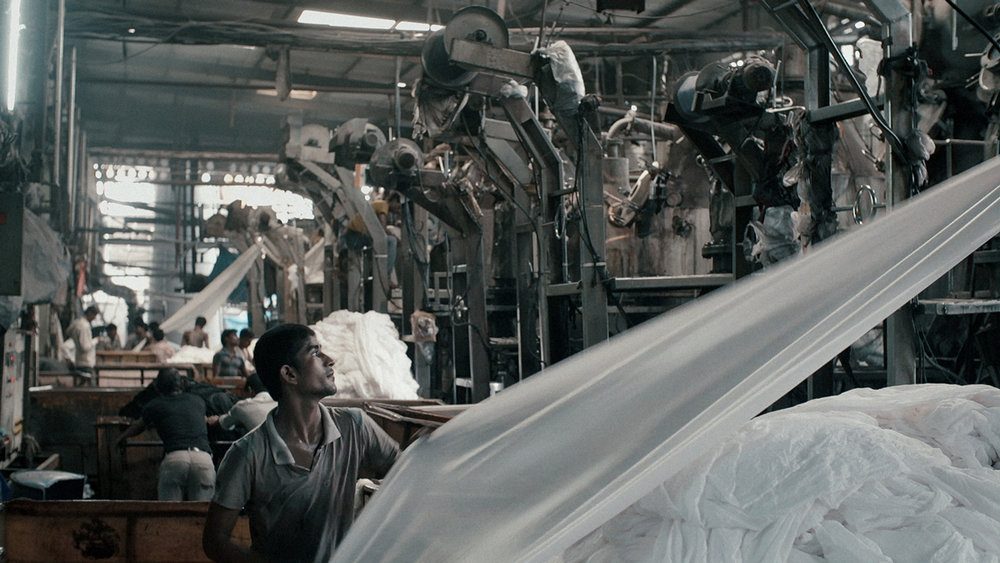Machines

Detailing the sinister underbelly and subsequent inequity of mass production in an increasingly globalised and synergic geopolitical sphere, Rahul Jain’s debut documentary Machines takes the viewer on quite a journey of both beauty and anguish. The journey consists of exploring the inner workings of a textile factory in Gujarat, India, with select interviews with some of the employees and other individuals higher up in the plant’s hierarchy. The commercial zone of Sachin, south of the Indian metropolis Surat, is one which, since the 1960s, has undergone unprecedented and unregulated industrialisation. Jain’s film portrays just one of the factories resulting from this industrialisation, detailing the poor working conditions by way of generating thought about the persistent void between the first world and developing countries.
The dimly lit, maze-like construction of the factory – a foreboding structure that the director himself experienced as a young boy – is captured with exquisite but nonetheless paradoxical tranquillity by cinematographer Rodrigo Trejo Villanueva. We witness a cacophony of industrialised sounds, coupled with an equally industrialised array of machines, worn-out bodies, materials and uninviting corridors. Yet the Steadicam use by Villanueva (which won the documentary the Special Jury Award for Excellence in Cinematography at the Sundance Film Festival this year), coupled with the intimate focus on the real perpetrator of the situation – the fabric – offers a more placid counterpoint to the mechanical and unforgiving factory space. There is a mesmerising beauty to the materials being woven through the various machines, carrying with them an elegance and colour that stand out vividly from the monotonous greys and blacks of the building’s walls; on the other hand, however, the anguish of the employees, the laborious monotony of the workers’ regimes, the terrible working conditions and equally dire wages, and the ultimate inequity of such a system of mass production, reveals the fundamental truth behind such an elegance represented by the fabrics.
In his directorial statement, Jain describes the factory as “not just one factory, it’s a civilisational structure”. This is precisely what is represented in the deep, dark depths of the textile plant. This civilisational structure is one born from the all-too-often unacknowledged lack of fairness underlying the process of globalisation. In its temporal patience, Machines gives precedence to the forgotten individuals, encouraging us, as spectators, to question the systems that allow for such inequity.
Samuel Estebanez
Machines is released nationwide on 19th May 2017.
Watch the trailer for Machines here:





















Facebook
Twitter
Instagram
YouTube
RSS